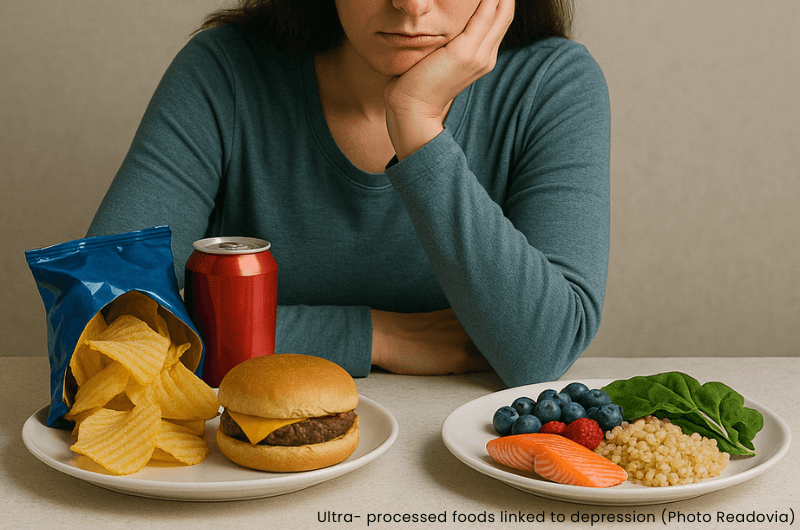A recent study conducted by researchers from Harvard Medical School and Massachusetts General Hospital has found a significant link between high consumption of ultra-processed foods and an increased risk of depression among women. The study analyzed data from over 31,000 participants in the Nurses’ Health Study II, tracking dietary habits and mental health outcomes over a 14-year period.
Participants who consumed the most ultra-processed foods—such as packaged snacks, sugary cereals, and processed meats—were found to have a higher incidence of depression compared to those who consumed the least. Notably, the study highlighted that artificial sweeteners and artificially sweetened beverages were particularly associated with increased depression risk.
Researchers suggest that these foods may contribute to inflammation, disrupt the gut microbiome, and affect neurotransmitter function, all of which are factors implicated in depression. The findings underscore the importance of dietary choices in mental health and suggest that reducing intake of ultra-processed foods could be a modifiable risk factor for depression.



































